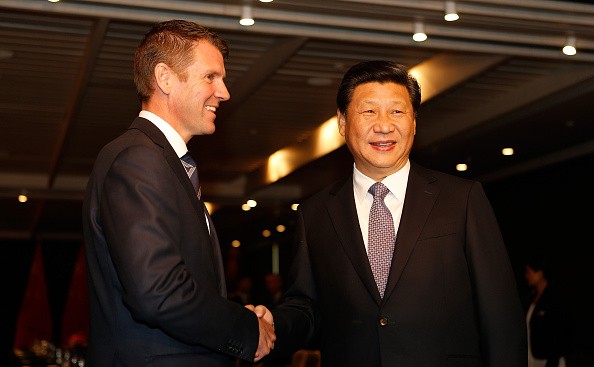Chinese companies keen to invest in Australia have taken on a new stance by playing down the "Chinese" element to assuage the concerns of people on Chinese acquisitions.
In Tasmania, Chinese investment surged following President Xi Jinping's visit to the island in Nov. 2014. Moon Lake Investments bought Australia's largest dairy for $200 million and the sale was approved by the Australian Foreign Investment Review Board in Feb. last year. The dairy covers more than 19,000 hectares of pastoral land in Tasmania.
The Straits Times said that the growing sentiment against Chinese acquisitiveness in Australia has forced the Chinese to adapt the strategy.
Following the outcry, the Australian government moved to tighten its foreign investment procedures, enforce a new property tax on foreign buyers and conduct reviews of agricultural land owned by foreigners.
Although the review found that only 3 percent of foreign-owned land belongs to Chinese owners, it did not stop Senator Pauline Hanson, a far-right politician, from criticizing the Chinese. In Sept, Hanson warned that "if we keep heading down the path of selling our land and our houses and everything, we will be swamped by the Chinese".
But Chinese investors have found a way to continue with their investment plans, the report said.
An attempt by a Shanghai-based investor to buy 80 percent of S. Kidman and Co, Australia's largest cattle ranch, covering about 1.3 percent of Australia's total land area, was initially rejected but after teaming up with Gina Rinehart, an Australian tycoon, and reducing its share to 33 percent, the deal was finally approved in December.
The same deals in agriculture and real estate will also take the same path, the report said.
The Chinese government also took a different stance. Last week, during his Canberra visit, Chinese Foreign Minister Wang Yi stood up for global trade and promoted not only China but also the "open world economy."
Incidentally, the visit was made a day after the tragic phone exchange between Australian Prime Minister Malcolm Turnbull and U.S. President Donald Trump.
In contrast to Trump's humiliating message, China and Australia seemed to share the same thought on the importance of free trade.
While Wang echoed President Xi's message in Davos, Turnbull also delivered a message a week earlier during his address to the Australian National Press Club, where he criticized "political opportunists" who "offer the false promise that subsidies and trade barriers, under the banner of Australia First, are the answer to protecting jobs."
The Australian leader also defended its partnership with China, saying that the country is part of the larger Asian market that is interested to buy Australian products.



























